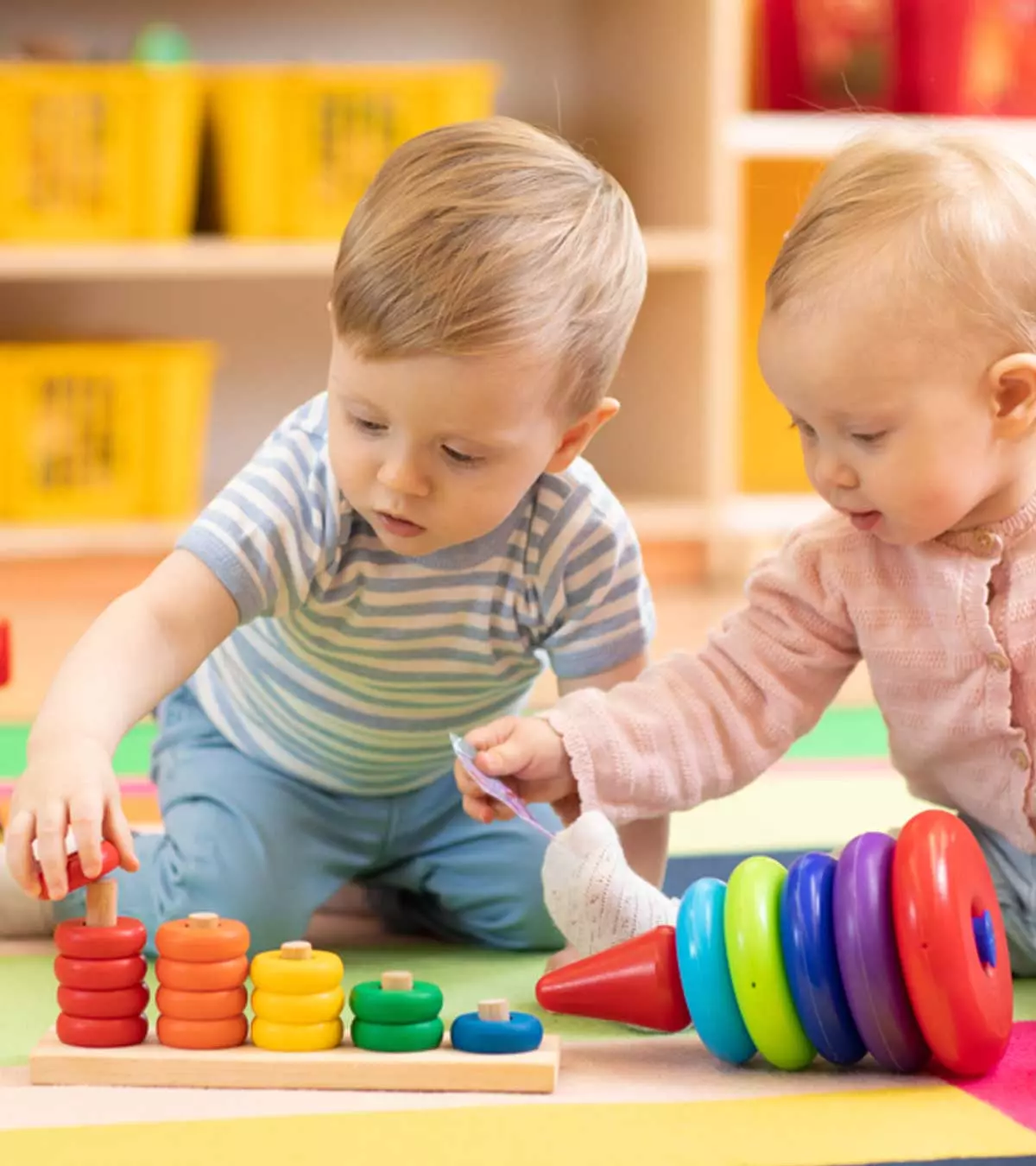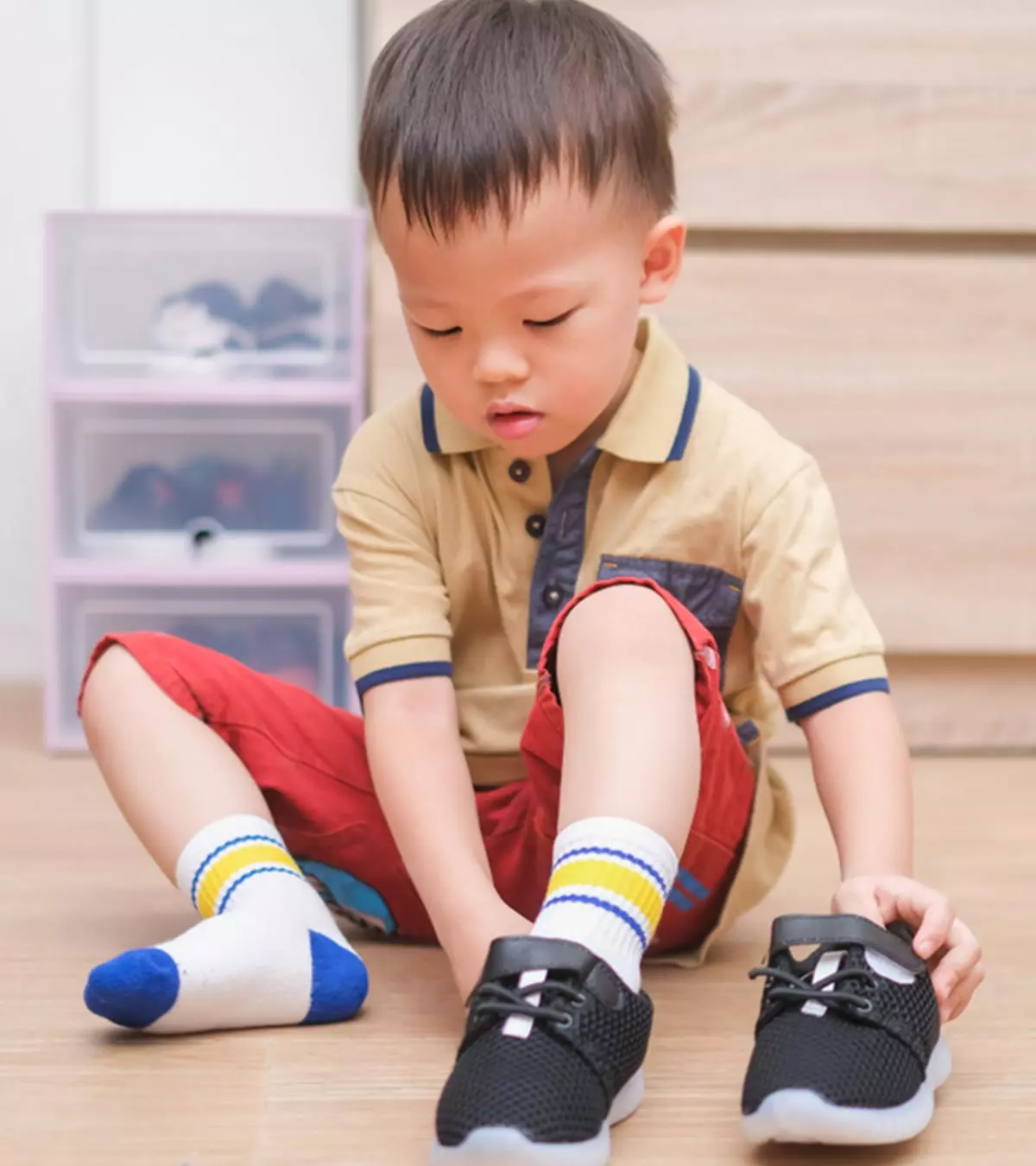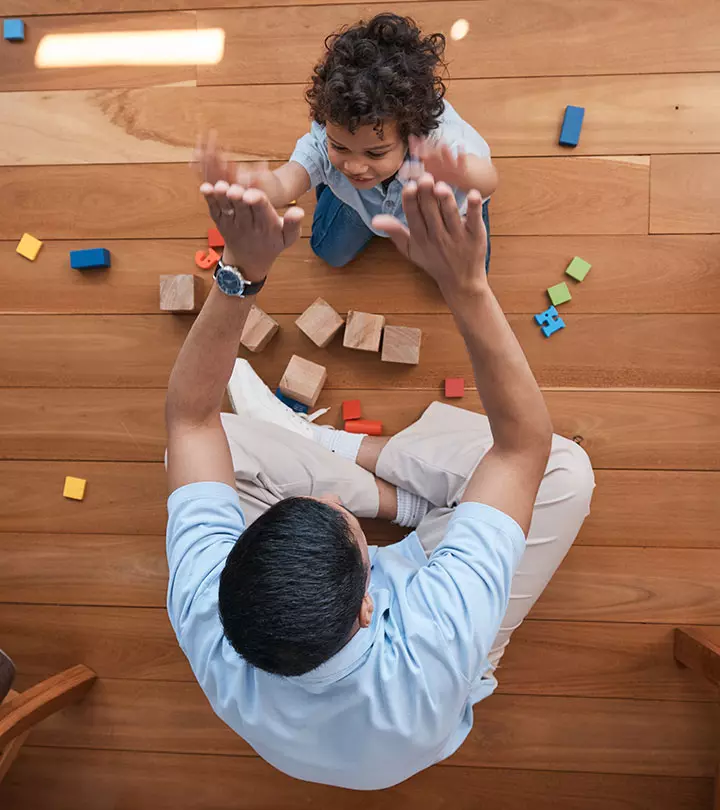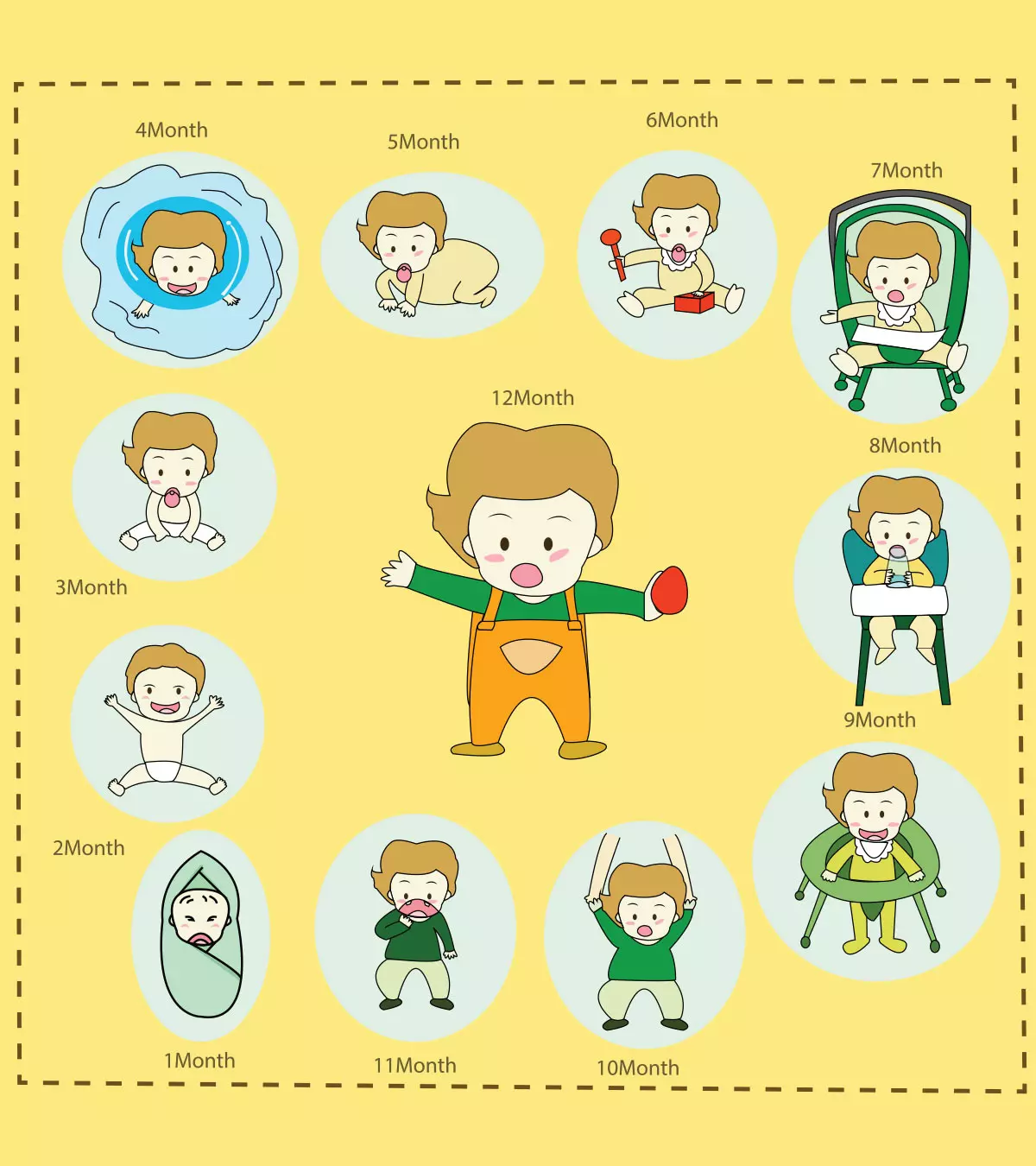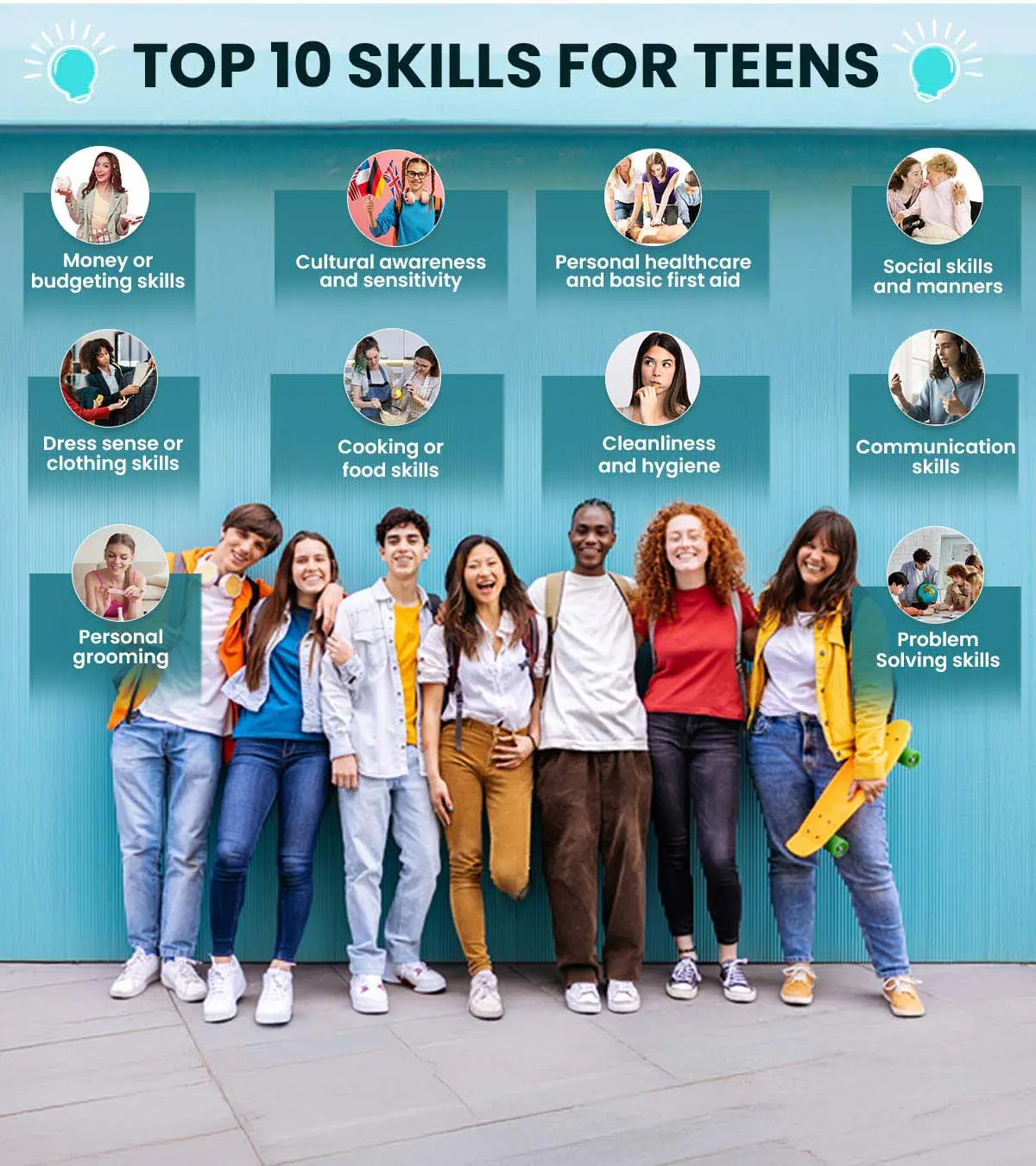
Image: MomJunction Design Team
It takes no time for children to grow up into teenagers and then adults and have a personality and life of their own. However, children may have to fly the nest for a better career and carve a niche for themselves. Read on to know how to introduce essential life skills for teens as they play a pivotal role in getting adjusted sooner and surviving the challenges of life during this transition. Plunge into this post as we bring you a list of the basic life skills your teenagers should know before entering the real world.
Key Pointers
- Teaching children important life skills such as cooking, cleaning, and driving is crucial.
- Maintaining personal hygiene and dressing well boost children’s confidence.
- Effective communication, social skills, and good manners enhance children’s personality.
- Learning time management and setting goals make children more efficient and help them achieve their goals.
Essential Life Skills For Teens
Australia-based clinical psychologist Emily Hanlon says, “I’ve worked with many teens navigating the transition to adulthood, and I’ve found that self-advocacy, emotional regulation, problem-solving, and resilience are among the most critical life skills for building independence and self-confidence.”
To make your child ready to face anything in life, you should help them acquire these basic life skills as a youth (1) (2) (3).
1. Money or Budgeting skills

Image: Shutterstock
Money may not be the most important thing in life, but it certainly is vital for a comfortable life. That is why financial literacy is an important skill to learn as a teenager.
Infographic: Important Life Skills Every Teen Should Learn

Illustration: Momjunction Design Team
Budgeting skills help teenagers learn the value of money, conscious spending, and planning for the future. It allows teens to gain financial literacy, security, and independence (4).
Some important financial concepts you can help them learn are as follows:
- Make a budget and stick to it. Your children should know when to spend and when to save.
- Every teen must know how to open a bank account, use the ATM, transfer money online, and write a check.
- Apply for a credit card, how to use it, and how not to get into debt using a credit card. The most important lesson your child should learn here is how credit works and how quickly they can get sucked into a whirlpool of debt if they are not careful.
- Save money to buy or invest in something for emergencies.
- Give money to charity without going overboard.
- Maintain financial records.
- Assess the basic market value of goods.
A practical way to teach such financial concepts is by providing your teen with a monthly allowance. They can use the allowance to buy things they need, such as school supplies while saving for that bike or skateboard they have always wanted. This activity will teach them budgeting and tracking expenses while boosting self-confidence (4).
2. Cooking or food skills
Knowing how to procure food or cook food is one of the primary life skills for teenagers. Teach them the below basic food skills to survive in any part of the world.
- Buying groceries is essential to cook. One of the important skills here is to be able to identify different ingredients and know where they are available.
- Learn ways to use kitchen appliances, such as microwaves, coffee makers, dishwashers, and toasters.
- Know about different utensils and cutlery items and their use in food preparation.
- Prepare a healthy meal with the ingredients available. Teach your teen the basics of cooking a decent meal using simple ingredients. You may look up some easy recipes for teenagers to cook if your child is trying cooking for the first time.
- Know the right ways to store food. You want your children to know where and how to store different food products like fresh produce, packaged food, and liquids.
- Besides knowing about the importance of having nutrient-rich food every day, they should also know how to read food labels for nutrition and ingredient information.
- They should be aware of the health hazards of eating too much junk food.
Weekly meal preparations can be turned into a family activity where children are involved in meal planning to cleaning up after preps. Cooking meals as a family promotes kitchen safety, willingness towards self-sustenance, and family bonding. It also promotes healthy eating habits (4).
3. Dress sense or clothing skills
Your teenagers might change their style completely owing to external influences, but the chances are they may get influenced by the wrong people. So, here is how they get one of the everyday skills right.
- Picking the right-sized clothes and a decent outfit.
- Choosing the right kind of clothes for the right occasion.
- Sewing is a skill both men and women can benefit from.
- Iron a shirt, trousers or suit. What is more important is to distinguish between clothes that need ironing and those that don’t (we don’t want them ironing their jeans now, do we?).
- Do the laundry. Teach your teen to wash clothes by hand or use a washing machine and deal with simple stains.
- Fold clothes and put them neatly in their cupboard. You do not want a messy closet at home or away.
- Pack a suitcase.
- Read and understand fabric labels.
- Gently tell your teen what their clothes say about them and the level of respect they would get in certain situations such as interviews or among the opposite sex.
The development of dressing skills may be encouraged by allowing the teen to pick their outfits for interviews and events. It may help enhance their self-perception, understanding of clothing, and how first impressions matter in social and personal settings.
4. Personal grooming
Grooming is a skill that children need to learn early on. Personal grooming is essential to develop independence, stay healthy, and have a good social or romantic life. Grooming is one of the health habits for teens that will promote hygiene and boost self-confidence. This skill goes hand-in-hand with appropriate dressing and thus may be incorporated by having a proper hair, nail, and skincare routine while preparing for school and events. It contributes to good health and increased self-esteem.
- Teach them healthy habits like brushing and bathing daily.
- Explain the importance of keeping their bodies clean. In addition, they must know how to care for their skin and hair.
- Boys should know how to shave or maintain facial hair hygienically.
- Teach girls to stay clean during their periods, proper disposal of sanitary pads, etc.
 Point to consider
Point to consider5. Cleanliness and hygiene

Image: Shutterstock
Cleanliness is one of the tenets of hygiene. Teach your children to keep themselves and their surroundings clean and tidy. This is particularly important when considering personal hygiene for teenagers, as it forms a crucial part of their grooming and home management skills. Some of the basic things that your teen could do include:
- Dusting and vacuuming.
- Mopping floors and getting rid of cobwebs.
- Keeping bathrooms and toilets clean.
- Keeping the kitchen clean.
- Clearing garbage regularly.
- Eliminating clutter from time to time.
- Knowing how to clean dishes by hand, (not all homes have dishwashers).
This skill is best learned in shared spaces like hostels and paying guest accommodations. However, you may teach this at home with a weekly cleanliness inspection routine. Let every family member clean their room and the common areas of the house. It may become a family weekend tradition, ensuring a sense of responsibility toward cleanliness.
6. Personal healthcare and basic first aid
Self-care for teens is as important as it is for an adult. Hence, among the critical things that a teenager should learn as a part of self-care is to take care of their health. Important points to remember here are:
- Knowledge of personal health and over-the-counter medications that can come in handy.
- Knowing when to go to the doctor.
- Taking proper care of self, through proper diet and environment, in the case of illnesses like common colds, fever, or the flu.
- Health insurance and how it can help them. Teach your teenager to keep track of health insurance payments to ensure they get aid when needed.
- Handle medical emergencies, like calling 911 or the emergency number in your country.
- Get your teen to learn basic first aid skills like cleaning a wound, using bandages, and other first aid in case of medical emergencies, which may enable him to save a life, should such a situation arise in the future.
The best way to teach your child about these everyday living skills is to help them take care of themselves at home. For instance, encourage the teen to do basic first aid when they or their sibling has a minor wound from an activity or accident. Involve them in getting appointments, contacting professionals or an ambulance, and providing medical history during emergencies.
The best way to teach your child about these everyday living skills is to help them take care of themselves when they are at home. Avoid doing everything for them.
7. Environmental Awareness And Sustainability Practices
According to the UN, “Sustainable development is the development that meets the needs of the present without compromising the ability of future generations to meet their own needs.” Teenagers should be educated on how to protect the environment and maintain sustainability. We only have one earth and we should strive to keep it clean and healthy. A few ways for teenagers to be environmentally friendly and sustainable are:
- Knowing the three R’s – reduce, reuse, and recycle.
- Carpooling or using public transportation to reduce carbon emissions.
- Avoiding use of single-use plastics.
- Paying attention to what you consume and avoid food wastage.
- Using sustainable brands and products.
- Conserving energy and water.
Encourage recycling at home by adding degradable waste to a compost pit and making arts or crafts out of non-biodegradable trash. You may also model sustainability by replacing your plastic items with steel, ceramic, and clay items.
8. Social skills and manners
Teaching your child skills and manners, which they display in a social setting, is essential for a smooth social life. Debating and role-playing are engaging social skills activities for teens that can help them develop these crucial abilities. Having a weekly family gathering at home where everyone is encouraged to have knowledge-based discussions, share their talents, or tell tales from their life is another idea to try. It will help the teen to develop etiquette, relationship, and communication skills.
A few social skills that might help teens build a healthy social life include:
- Exploring and pursuing hobbies, recreational interests and activities to meet like-minded people.
- Learning how to develop and maintain friendships.
- Valuing relationships and people in their lives.
- Teach them how to maintain healthy relationships.
- Learning party etiquette, including how to be host and guest.
- Respecting people and their views, regardless of what they think about others.
9. Cultural Awareness And Sensitivity
Being culturally sensitive and aware means recognizing cultural differences and similarities that exist without judging them as good or bad. It is to understand that differences affect values, learning, and behavior. Cultural awareness helps us understand people from a variety of backgrounds and cultures. Being culturally aware does not mean one would be an expert in another culture, but it means having an open mind to understand, ask questions, and avoid making assumptions and judgments.
A few ways to be culturally aware can be:
- Providing education and exposure to different cultures by including guest speakers.
- Participating in healthy discussions, debates, and open dialogues with people from other cultures.
- Incorporating interactive activities by including cultural projects, role-playing, and cultural simulations.
- Having mutual respect and understanding towards other cultures. Be respectful when using their language, costumes, or or participating in their traditions.
- Foster an inclusive environment where they feel welcomed and appreciated for their differences.
Going on staycations to different countries and participating in their regional or cultural events while exploring their cuisine, art, and literature allows you to understand diversity and inclusivity deeply. Also, having a multicultural peer group encourages cultural awareness, builds tolerance, and fosters respect.
10. Volunteering And Community Service
The benefits of volunteering and community service will stay with an individual not only during their teenage years but all through their life as an adult. It has a positive impact on the individual’s educational, professional, and personal life. Encourage your teen to participate in community service and church activities. Allow them to volunteer with their school and local community clean-up services. The skills that one learns while volunteering or community service are not taught in a classroom setting. These include clear communication, creativity, problem-solving, teamwork, developing empathy, and time management.
A few benefits for students to volunteer include:
- Finding something they are passionate about and that aligns with their interests.
- Volunteering with friends can make it more fun as it creates stronger bonds.
- Support and guidance are also necessary for teenagers. You can help them by finding opportunities, setting goals, and reflecting on their experiences.
- Always celebrate their wins, big or small.
- Teenagers can volunteer in animal shelters, environmental projects, community events, food banks, fundraisers, and tutoring younger children.
11. Organization skills
Lack of organization is one of the factors that lead to poor time management. A poorly organized person is almost always searching for something. Sounds familiar?
Here is how you might help your teenager stay better organized.
- Teach them the simple rule of Kaizen – a place for everything and everything in its place. Help them implement this rule, and they will not have to ‘search’ for something the next time.
- You can help them use an organization tool or system to arrange their books, clothes, and other things. Organizing stuff helps declutter a room and makes finding something easy and less time-consuming. The organization also helps declutter a room and makes it easier to find something in less time.
- Explain to them that they can avoid making blunders when they are more organized.
Having your teen make a timetable of their daily routine is another way to teach them organization. Encourage them to adhere to the timetable and set deadlines. Provide them with timers and alarm clocks to monitor the time they take and discuss their success and failures at the end of each day. It will enhance their productivity and help them efficiently balance multiple responsibilities.
12. Domestic skills – managing a home
Imagine your pampered little child finally finishing college and starting their own life. But they might hate every moment if they do not know the basics of home management. So teach your child domestic skills early on. Encourage them to take on household responsibilities when you are away from home. Train them with management basics like:
- Ways to find the right accommodation or housing options.
- Manage utilities, pay bills.
- Basic maintenance of the house – vacuuming, dusting, and cleaning
- Simple things like fixing a broken circuit, locating a water furnace, turning it off or on, and addressing the basic plumbing issues might help them manage their house better.
13. Driving and auto maintenance skills
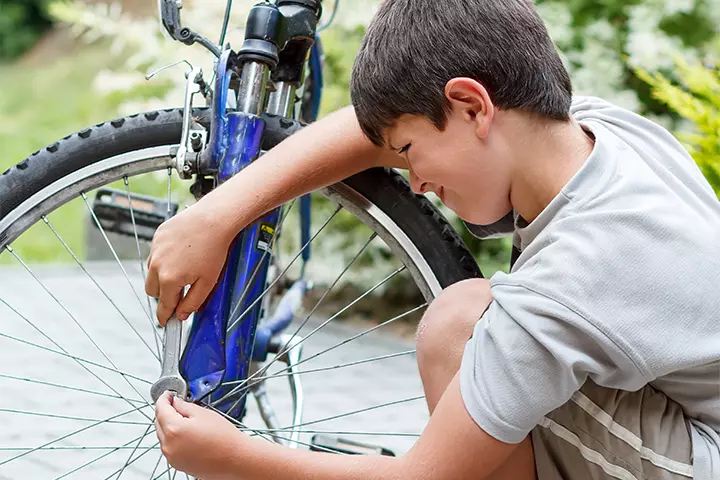
Image: IStock
Driving is one of the most important life skills for teenagers to be self-dependent. But knowing how to drive a car is not enough. Your teenager should also know about road safety, auto care, and what to do when there is vehicle trouble. Engage them in auto repair and maintenance work at home. Teach them to:
- Buy a car and insurance.
- Registration of the vehicle.
- Have important vehicle records and documents, such as driver’s license and registration papers, while driving.
- Pump gas and change oil for maintenance.
- Change a tire using different tools.
- Know and follow traffic rules for the safety of self and others.
- Teach them the importance of wearing a helmet and a seat belt.
- Also, make sure they know the dangers of speeding and rash driving.
14. Navigational skills
Basic navigational skills are more important so that even if they do not have a car, they will be able to travel from one place to another. Some things they could learn are:
- Reading bus, train, or flight schedules and timetables.
- Reading maps to go from point A to point B.
- Understanding directions – north, south, east, and west; left, right.
- Knowing traffic and road terms like curves, exits, freeways, highways, etc.
- Being aware of information about the different transport options to reach different places.
Allowing teens to travel to new places by public transport will enable them to understand transport schedules and directions. It encourages them to read the map or use a GPS to guide the driver on family road trips, which will help them understand routes and road terms.
15. Communication skills
Communication may seem more like a business skill. But think about it, won’t your teenager need to communicate in his personal life? Teaching your teen how to get their message across without offending another person is important. Communication is a critical skill that your teenager will need to master for interpersonal relationships in personal and professional lives.
Sanyu Kimberly Grace, a mentee at the Trailblazers Mentoring Foundation, highlights the importance of communication skills through her personal experience. She says, “I joined Trailblazers Mentoring Foundation as a mentee in 2013 and the first activity I was involved in after orientation and meeting my mentors was a life skills workshop… We covered skills of knowing and living with one self. I found the sessions fun because we did exercises and presentations, we shared thoughts on self awareness looking at who we are, our strengths, weaknesses, emotions, fears, background and culture; this session helped me understand how unique and special I am. We also learned about assertiveness, a skill whereby you know what you want and why, being able to communicate it in a gentle but firm manner and being ready to stand by your decision, no matter what (i).”
Try talking to your teen about these important skills when it comes to communication.
- People are different, and all don’t speak the same language.
- There is a need to understand the individual’s temperament before determining how to communicate with them.
- Nobody likes being told what to do. Even your teenager does not appreciate that.
- Explain to them the importance of listening skills in communication.
- Empathy and the importance of understanding another person’s perspective are necessary.
- Negotiation skills to create win-win situations.
- Different forms of communication, such as writing, talking, and non-verbal gestures.
- Using different modes of communication like a telephone, letters or email, etc.
16. Critical Thinking
Critical thinking is one of the most vital skills a teen should have and learn. The ability to clearly present your ideas and thoughts is considered a critical skill. Critical thinking implies to think freely, rationally, and clearly. It can happen when teens can formulate ideas, form opinions independently, analyze, and then come to a reasonable conclusion.
A few ways to help teens with critical thinking are:
- Asking open-ended questions can help them think critically before answering, instead of just answering with yes or no.
- Indulging them to read books with intricate characters. Reading about such characters can help them critically think about why a character behaves in a specific way.
- Using real-life scenarios and giving them time to ponder over their answers.
- Helping them to sort through information by checking the sources and spotting biases.
- Giving them puzzles to solve, which can be a fun activity that also boosts brain power.
17. Behavioral skills
The character of an individual shows in the way they behave. Help your teenager build a strong personality by helping them develop healthy behavior. Here are a few basic things you could consider teaching them.
- Accepting a mistake, admitting a mistake, and taking responsibility for their actions are perhaps the first things you can teach your teen.
- Most teenagers have a problem apologizing. Teach them to say ‘sorry’ and not feel embarrassed about it.
- Teach them to be polite and say ‘please’ and ‘thank you’ when needed.
- Morality is a concept that you should introduce to your teenagers early on. That teaches them to stand up for what they believe is right, conscientiousness, and a sense of responsibility for the less fortunate.
- Teach them to stay true to themselves and others. It can be done by making them explore the values that are most important to them.
- Teach them to ask for help when needed. It is important to be self-reliant, but there are times when we all need help. Explain to them that it is ‘okay’ to ask for help.
The only way to help your teenager learn about moral behavior, honesty, and character is through practice. Parents should guide children through their growing years to inculcate healthy behavioral traits.
18. Conflict Resolution Skills
Conflict resolution is the ability to resolve a dispute between two people peacefully and fairly. Teens often face conflicts with friends, family, or themselves during adolescence. Common issues include misunderstandings with friends, arguments with parents over house rules, and peer pressure regarding behavior or activities. Conflict resolution is an important skill to learn as a teen as it will help an individual navigate through complex situations and disagreements in interpersonal relationships. It helps to become a well-rounded person.
A few ways that can encourage conflict resolution skills involve:
- Remaining calm and not losing your cool if you disagree with the other person.
- Talking it out and engaging in listening actively to what the other person is trying to convey. Having a conversation without blaming is important.
- Trying to be in the other person’s shoes or looking at the conflict from their perspective.
- Finding a common ground or coming to a compensation.
19. Skills to stay safe
When your teenage children are out in the world all by themselves, it is important to know how to stay safe. In fact, staying safe is one of the most important life skills for teenagers.
According to a report by the World Health Organization (WHO), accidents and drowning have the highest number of preventable deaths owing to the lack of safety awareness (6). However, it is not just physical but the virtual plane too that poses safety threats to teens. Studies on social media use among teens reveal that 17 percent had an unsettling experience with unwanted contact from strangers (7).
Here are a few pointers that might help your teen to stay safe on the physical plane as well as the virtual plane (online).
- Stay safe on the road when alone. Teach your teen to use their common sense and avoid secluded parking lots, deserted roads, and empty plots away from civilization.
- Teach your teens what to do if they get a flat tire in the middle of the highway, or the car breaks down at night on a deserted road. Encourage them to call for help and avoid venturing on their own at night.
- Avoid traveling with strangers or picking up hitchhikers when traveling alone.
- Ask your teen to get a ride at night always or have someone meet them on the way.
- Keeping someone posted about their whereabouts is a good idea.
- Carry extra cash just in case they need to take a taxi.
Teach safety during crises through demonstrations of unexpected situations and attacks. Provide teens with adequate resources such as contacts for help and the knowledge needed to handle virtual crises. Encourage them to have a safe word that only themselves and the parents know to make verification and communication more effortless.
20. Swimming
Swimming is an underrated life skill that many may not even think twice about. However, knowing how to swim is an important skill that can help you avoid several mishaps.
- Learning to swim reduces the risk of drowning and increases safety around water, whether at pools, lakes, rivers, or oceans.
- Swimming is one of the best forms of exercise that builds confidence and combats fears.
- Swimming can equip you with the necessary skills to respond effectively in water-related emergencies, potentially saving lives.
21. Coping with emotions

Image: IStock
Teaching teens to cope with emotions will allow them to see both sides of a situation. Coping and self-management skills that you could teach your teenagers are mentioned next.
- Self-management or control, this allows them to set the pace to how they react to different situations, people, and things in life.
- Teens will have to cope with loneliness and being away from their loved ones when they go to college. It can be difficult for them if they do not learn how to deal with the change.
- Avoid impulsive decisions that can have severe consequences, mostly negative.
- Managing feelings in a healthy way. Teach your teen to think and act rather than react. Reactions can result in negative consequences, but thoughtful action seldom does.
- As an adult, your teen will have to deal with stress at work, home, in personal relationships, and so on. Therefore, stress-management and resilience are important skills you should help your teen acquire.
- A critical skill you should help your teenager with is accepting their emotions. Tell them that no emotion is bad or good, and it is okay to feel happy, sad, afraid, angry, aroused, silly, jealous, and even guilty. The trick is not to dwell on a particular emotion.
- Teach them different ways to deal with their emotions, such as physical activity, meditation, listening to music, or just talking about it.
- Encourage them to maintain a journal to record their feelings about daily events. It can help them understand their triggers better and enhance their coping skills.
- Spirituality can also help in coping with major life changes.
- Remember, teenage brains are going through a major change. Therefore, empathize with them where possible and understand that they are still learning to manage emotions and stay calm.
22. Mindfulness And Stress Management
Being a teenager is not always easy with the emotional ups and downs and hormonal changes. However, being mindful can help. To be mindful is to be mentally present by paying attention to your thoughts, feelings, and sensations. It is the practice of being gentle and caring without any judgments towards oneself.
A few ways to practice mindfulness include:
- Taking deep breaths and focusing on the breathing pattern.
- Practicing meditation as a way to self-reflect on emotions and experiences.
- Journaling can also help one express their innermost thoughts and feelings.
23. Problem-solving skills
Among the main life skills for youth are problem-solving and critical-thinking skills. You cannot expect your children to come back to you for help whenever they have a problem. What you could do is teach them to deal with problems like mature adults.
- Teach your children to face problems rather than run away from them.
- When your teen comes to you asking for advice, try not to jump in and resolve the problem for them. Instead, ask them what they think they should do and help them work through possible options. It will help break the habit of coming to you.
- The first step to problem-solving is identifying the problem. The key is to find out exactly what is bothering them and why it is a problem. Then, help them narrow down the problem by asking a simple question: “Is my current situation different from how I would want it to be?”
- Once they pinpoint the problem, help them develop a list of possible solutions to it.
- Analyze each solution to know which option gives you the desired result or something close to it.
- Once they shortlist the options, your children will have to use their decision-making skills to pick an option they think is best for them.
- Then they can apply the chosen solution and check if they are right.
24. Basic educational skills
Education is essential for living a comfortable and healthy life. There is no dispute about it. Your children would have learned to read, write, and speak at home. But they might also need to have digital literacy, that is to know how to use a computer, a phone, and other gadgets.
Usually, children tend to understand digital technology faster than their parents. But they may not understand all things analog. Also, the use of smartphones and instant messaging has also changed the way they use their language skills. So, you might encourage your children to:
- Write in complete sentences. They cannot use shortcuts and slang when writing their papers in college or sending business emails.
- Read to understand, not just skim through the text.
- Write letters, maintain a journal, or just make notes to improve their language and communication skills.
To stay safe online, remember these tips:
- Use passwords that aren’t easy to guess.
- It is safe to use a VPN to protect personal information when browsing online.
- Avoid accessing banking accounts using public networks.
- Avoid talking to strangers or sharing personal information and photos with them.
- Alert you if someone makes sexual overtures online.
25. Digital Literacy And Online Safety
In today’s generation where technology and the internet are on the tip of everyone’s fingers, it is important to know how to navigate the virtual world safely. While the internet can be used for a lot of good, there are quite a few negative aspects about it too. Teens may be at risk of cyberbullying, online extortion, and inappropriate content if they are uneducated about internet safety.
A few ways to be safe online include:
- Creating strong passwords that are a mix of letters, numbers, and special characters.
- Being cautious about what you are posting and sharing online. Personal information should be kept private.
- Not getting tricked by scams into giving away personal information.
- Installing and updating antivirus software regularly.
- Being mindful of people you meet online.
26. Social Media And Screen Time Regulation
In the age of technology and social media, it is important to set boundaries and limitations on how much time you spend scrolling through your phone. Regulation of screen time can help with your mental health, good sleep, and academic performance. It also enhances your social life.
A few ways to set boundaries include:
- Establishing daily or weekly limits for screen time, including social media use. There are numerous apps that can help regulate your screen time.
- Designating certain areas such as the kitchen or dining room as screen-free zones can enhance and improve your family time and relationships.
- Encouraging yourself to participate in other physical or intellectually stimulating activities.
- Parents can lead by example by limiting their screen time.
27. Goal setting – knowing how to prioritize
Teach your children to identify their skills and set goals that can give them personal gratification as well as professional success. So,
- Figure out what they want to do and where they want to be in a few years’ time. Help them gain clarity.
- Set realistic goals, or else they will end up disappointed sooner than later.
- Focus on their goals and chalk out a plan to achieve them in a realistic manner.
- Identify resources that can help them achieve their goals.
- Change goals or modify them if needed. Goals can be changed or adjusted to suit a person’s changing needs. Your teenager may also change as an individual, leading to changes in their personal or professional goals.
- Eventually, you can guide your teenager to a position where they can set bigger goals, paving the way for a more meaningful and purposeful life.
Encourage them to write down their goal and break it into actionable parts. Follow up on their plan to achieve their goals and also help them sort through blocks. Appreciate their achievements and analyze failures. It will allow them to gain perspective, discipline, and prioritization skills.
28. Time management

Image: IStock
How often have you heard your teenager complain about not having enough time to do all that they want to? We all have 24 hours in a day. How we manage makes a world of difference in what we achieve. Essential skills that your teen might need for better time management include:
- Start by modeling good time management habits. If you are always wishing for ‘more time’ and doing things in a hurry, chances are your children will learn to do that too.
- Teach them to organize their time using a simple timetable or a planner.
- Let them create a schedule and stick to it. Even the slightest deviation from the plan can leave them crunched for time.
- Teach your children to prioritize their tasks to use their time responsibly. Help them identify important tasks and differentiate between what is important and what is urgent.
- Developing a routine makes it easier to manage time.
Encourage them through model behavior, but do not nag them about wasting time.
29. Decision-making skills
Your teenager will have to make decisions and choose every step of their adult life. Everything is a decision, from something as simple as what to eat for dinner to making a significant career move or marrying a person they love.
- The first step to teaching your teenager to make a decision is to stop making decisions for them. However, you should not leave any major, life-changing decisions in the hands of an adolescent.
- Rather than telling them to do something, give them choices. Let them choose.
- Also, emphasize that every choice they make comes with a consequence. That way, they will learn to take responsibility for their decisions and inculcate the necessary leadership qualities in them.
- Help them make the right choices by weighing the pros and cons and determining the outcome of their decision.
- You could also teach them to make a list of options first and then evaluate each to make the right decisions.
30. Employability skills
To be employable or be noticed by potential employers, a person needs to have more than just credentials on the wall. So, here are a few skills you may encourage your teenager to develop for better career opportunities.
- Communication skills.
- Teamwork
- Critical-thinking and analytical skills.
- Work ethics and integrity.
- Leadership skills
- Adaptability
- Conflict resolution skills
- Ability to value and use the available resources.
- Knowledge and application of technology.
- Adaptability to adjust to new work environments and coworkers from diverse backgrounds.
- Willingness and ability to learn new skills and develop creativity. Teach your child to be open-minded.
- Ability to evaluate their own skills and identify weaknesses.
- Willingness to rectify faults to deliver better.
Let your teen write down their resume and attend small, part-time job interviews. Provide them with the resources to develop their professional competencies and practice essential skills.
31. Adaptability And Flexibility
Teenagers may experience a lot of changes, be it academically, personally, or even professionally. Being flexible and easily adaptable can help them get settled and overcome challenges a little more easily. Adaptability is the ability to adjust to new conditions, changes, or challenges quickly and effectively. Flexibility is the willingness to try different things and change plans or methods if needed. Both these skills can help an individual solve problems and handle change in a graceful manner.
A few ways to achieve flexibility and adaptability include:
- Kids and teenagers learn from examples. Showing them how you handle changes and challenges in your life can help them model this behavior.
- Helping them get out of their comfort zone to try new things and experiences. Be mindful not to force them into doing anything they are against.
- Roleplaying scenarios can help them prepare to deal with situations that require them to be flexible.
- Play a game where you provide relatable scenarios from your daily living and ask them to list down a plan of action along with a list of contingencies for things that could go wrong. This will help them plan ahead, build resilience, and thrive in unpredictable environments.
32. Public speaking skills
Public speaking skills are crucial for teens as they foster confidence, improve communication abilities, and are vital for academic and professional success. These skills aid in articulating thoughts clearly and persuasively, essential in various life scenarios. Mastering public speaking also enhances leadership qualities and social interactions. Here are a few ways to teach your teens to improve their public speaking skills.
- Start with comfortable settings by encouraging speaking in familiar, low-pressure environments.
- Practice regularly to build confidence and fluency.
- Focus on body language to teach the importance of eye contact, posture, and gestures.
- Develop listening skills so they become attentive listeners.
- Encourage reading aloud to improve diction and expression.
- Use video recordings to review performances and highlight areas for improvement.
- Join public speaking groups or clubs to learn from the experts.
33. Disaster Preparedness And Survival Skills
Disaster preparedness and survival skills involve being ready for emergencies like natural disasters or other unexpected events like a fire that could disrupt daily life.
A few ways to be prepared include:
- Learning where to get reliable information from, be it the news, messages, or reliable social media pages.
- Educating them how to escape a burning building. For example, staying as low to the floor as possible to avoid smoke or being careful when stepping on wooden structures.
- In case of floods, storms, or cyclones, educating them about safe places they can take shelter in.
- In case of separating during the calamity, decide on a person you both can contact. It is a good idea to choose someone who is not a neighbor or a local, since they may be affected by the same situation.
- Practicing and role playing different situations can help to be more prepared.
- In case you are using generators, make sure to educate them regarding carbon monoxide poisoning.
Tips To Encourage Your Teen To Learn Life Skills
Teens may face challenges that can demotivate them and distract them from learning life skills. Here are a few ways to encourage your teen to face their fears:
- Make the learning process engaging and connect the skills to their personal interests and future goals.
- Focus on one skill at a time and gradually introduce new skills.
- Use real-life examples and practical applications to show the value of these skills.
- Integrate life skills practice into daily routines and find small time windows for skill-building activities.
- Prioritize essential skills and break tasks into manageable steps.
- Be a role model by demonstrating good habits and inviting them to join in activities.
- Foster open communication about peer pressures and self-awareness.
- Increase self-confidence and engagement by involving teens in family decisions to foster responsibility and teamwork.
- Assigning practical responsibilities like meal planning or budgeting and discussing the outcomes of decisions may help build critical thinking.
- Offer support and resources such as online tutorials, community programs, virtual mentorship, and educational apps for learning and practicing skills.
- Encourage real-world experience through part-time jobs, internships, and community service.
- Encourage a growth mindset by celebrating efforts, progress, and learning instead of just success.
- Guide them to learn from their failures and rectify such mistakes in the future.
- Teens may resist learning from their parents due to a desire for independence.
Frequently Asked Questions
1. What are the benefits of life skills?
Life skills can make your children self-sufficient and responsible. They are made aware of their tasks and duties and allowed to complete them without the help or supervision of adults. Life skills also make them independent and disciplined in all aspects of life. It helps them understand their parents’ responsibilities and appreciate their efforts in raising children.
2. What are some tips for developing resilience and coping skills in teenagers?
Foster a supportive environment where the teen may feel heard and validated. Teach them effective problem-solving skills that will help them overcome challenges independently. Encourage teens to practice healthy coping strategies, such as exercise and mindfulness, to manage stress and regulate emotions. Promote self-care practices and emphasize the importance of seeking support from trusted individuals to help adolescents prioritize their well-being and understand that they are not alone in their struggles.
3. How can teenagers develop leadership skills?
Encourage teens to participate in activities with leadership roles that involve collaborating with others. Help them practice active listening to develop effective communication, decision-making, and problem-solving skills. Engage them in volunteer work or community service to develop empathy, compassion, and a sense of responsibility towards others. Most importantly, motivate them to learn from failures and embrace continuous growth to refine their leadership abilities.
When children reach the age of adolescence, they desire to go out and explore the world. Hence, as parents, you must instill these life skills in your children so they can survive and enjoy life to the fullest while being safe and healthy. With their teenage hormones at their peak, teaching life skills to teens may not be a stroll in the park, but this is where your experiences and skills as a parent will come in handy. The fundamentals of money management, time and home management, cooking, personal safety, and other areas will help your teen become more responsible and prepared to face the challenges ahead with ease and confidence.
Illustration: Essential Life Skills For Teens To Learn
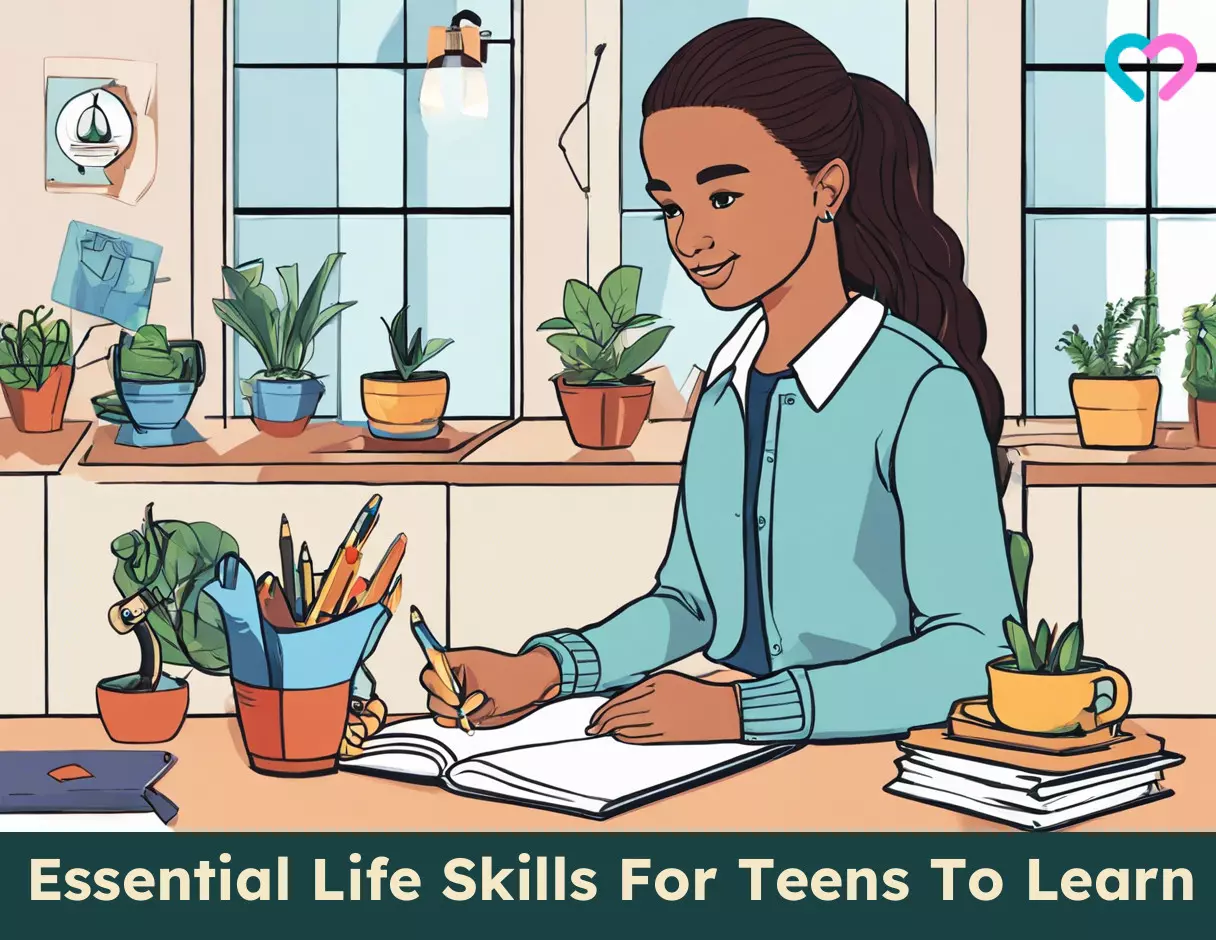
Image: Stable Diffusion/MomJunction Design Team
This video will show teens how to become a better person by learning 15 essential life skills. Learn how to be more confident, organized, and successful in life!
Personal Experience: Source
MomJunction articles include first-hand experiences to provide you with better insights through real-life narratives. Here are the sources of personal accounts referenced in this article.
i. Life skills: My experience as a mentee.https://trailblazersmentoring.wordpress.com/2014/09/01/life-skills-my-experience-as-a-mentee/
References
- Significance Of Life Skills Education.
https://files.eric.ed.gov/fulltext/EJ1126842.pdf - 6 independent living skills kids need before moving away from home.
https://www.understood.org/en/articles/6-independent-living-skills-kids-need-before-moving-away-from-home - A Practical Approach at Home for Parents and Carers Life Skills (Teenagers).
https://www.falkirk.gov.uk/services/social-care/disabilities/docs/young-people/Life%20Skills%20for%20Teenagers.pdf?v=201610191048 - Nurturing Financial Literacy in Teens.
https://www.capital.edu/admission-aid/college-readiness-resource-hub/tuition-and-financial-aid-hub/nurturing-financial-literacy-in-teens/ - Basic Cooking Skills for Teens.
https://kers.ca.uky.edu/core/reports/Story/s/11784 - Adolescent and young adult health.
https://www.who.int/news-room/fact-sheets/detail/adolescents-health-risks-and-solutions - Mary Madden et al.; Teens, Social Media, and Privacy.
https://www.pewresearch.org/internet/2013/05/21/teens-social-media-and-privacy/
Community Experiences
Join the conversation and become a part of our nurturing community! Share your stories, experiences, and insights to connect with fellow parents.
Read full bio of Michelle Bowyer
- Emily Hanlon is a clinical psychologist specializing in child and adolescent mental health. She is the founder of The Playful Psychologist, a platform dedicated to supporting psychologists, parents, and educators through evidence-based resources and professional development. Emily focuses on helping young people navigate emotional regulation, self-esteem, and social development in a world that often places external pressures on their identity.
 Emily Hanlon is a clinical psychologist specializing in child and adolescent mental health. She is the founder of The Playful Psychologist, a platform dedicated to supporting psychologists, parents, and educators through evidence-based resources and professional development. Emily focuses on helping young people navigate emotional regulation, self-esteem, and social development in a world that often places external pressures on their identity.
Emily Hanlon is a clinical psychologist specializing in child and adolescent mental health. She is the founder of The Playful Psychologist, a platform dedicated to supporting psychologists, parents, and educators through evidence-based resources and professional development. Emily focuses on helping young people navigate emotional regulation, self-esteem, and social development in a world that often places external pressures on their identity.
Read full bio of Sagari Gongala
Read full bio of Harshita Makvana
Read full bio of Apoorva K






